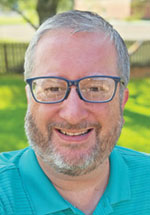Sight Unseen / Brandon A. Evans
Salvation is for the weak

Sometimes when I think of the angels it makes me a bit fearful—mostly because so many of them are in hell.
Angels are, as the Catechism of the Catholic Church says, spiritual beings of intellect and will, created before the world as “personal and immortal creatures, surpassing in perfection all visible creatures” (#330).
They stand before God with nothing between and nothing hidden, beholding his eternal nature in fullness and with a flawlessly sharp intellect.
Yet a third of them looked at love and mercy itself and said, “No.” A third of them threw themselves into hell and became demons rather than adore such everlasting goodness.
How could that be? What chance do we have as mere mortals to make the right choice if they can’t?
Our understanding and appreciation of God—and his holiness—is considerably dimmed by original sin.
And what’s more, that same fallen nature has led all of us to lead lives that, to put it mildly, fall short of what God commands.
But maybe it’s sin that is what gives us hope, strangely enough. Maybe we have it all backward: it’s possible that so many of the angels fell not in spite of their perfection, but because of it.
They didn’t need a savior. They didn’t need Jesus Christ to die for them; to show them his supreme and self-effacing love for their sake.
And they never had the chance to be so wounded that only a miracle could heal them.
When we pray for help “at the hour of our death,” it is partly a prayer, I think, to recognize in those final moments what God has been offering us all along. The hand he reaches out with is one of mercy and restoration—the hand of the one who is willing (and able) to wipe out a lifetime of debt and ill-spent grace.
Only by granting us the blessing of seeing our own misery so clearly do we understand just how good God is to want us to be in heaven with him. Only by being in such dire need are we so willing to be helped.
It’s precisely why Jesus warned people about the dangers of power and wealth: the more you have of both, the less you think you need God—or anybody else.
The angels’ might was so great that they could be mistaken for gods. They had no debt of sin and no deficit of nature.
Perhaps that’s why so many fell, at least in part.
And it begs the question as to whether our pitiable nature is the hinderance that we think it is.
Our weakness may not, after all, be what holds us back from salvation: it may be the very thing that makes it so possible.
(Sight Unseen is an occasional column that explores God and the world. Brandon A. Evans is the online editor and graphic designer of The Criterion and a member of St. Susanna Parish in Plainfield.)†
